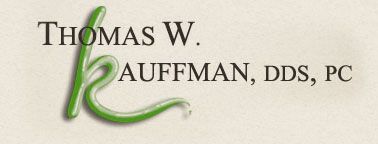Overcoming Dental Anxiety in Atlanta, GA
Are You Anxious About Visiting the Dentist?
Are you anxious about going to the dentist? If so, you’re not alone. Dental anxiety is a common obstacle that prevents many from receiving essential oral care. However, at Thomas W. Kauffman, DDS, PC, we do what we can to ensure that patients feel comfortable in our downtown Atlanta dental office.
To schedule an appointment with our dentist in Atlanta, call us today at (404) 524-1981.
What Is Dental Anxiety?
Dental anxiety, also known as dental phobia or dental fear, is intense negative feelings about dental appointments or procedures that can lead to avoidance of dental treatment. When some hear the words “dental appointment,” feelings of unease and apprehension often arise.
Symptoms of dental anxiety can manifest in various ways, such as increased blood pressure, pulse rate, and self-reporting anxiety and fear scales. Dental anxiety can have a detrimental impact on our oral health, leading to a vicious cycle of:
- Dental pain
- Health issues
- Heightened anxiety
- The need for more complex and costly dental treatments
To measure the severity of one’s dental anxiety, professionals often use various dental anxiety scales, such as Corah’s Dental Anxiety Scale (CDAS), Modified Dental Anxiety Scale (MDAS), and Dental Fear Survey (DFS). These scales consist of multiple questions about different dental situations and use response options to score patients’ anxiety levels.
Causes of dental anxiety
Dental anxiety can be triggered by a variety of factors, including:
- Past negative experiences
- Fear of pain
- Loss of control, especially when sitting in the dental chair
- Sensory triggers
Symptoms of Dental Anxiety
Dental anxiety manifests in various ways, making dental visits challenging for both patients and dentists. Some common symptoms of dental anxiety include:
- Elevated pulse rate
- Perspiration
- Fainting during a dental visit
- Feelings of panic, dread, or embarrassment
- Avoidance of dental appointments
- Inability to cooperate adequately with dental professionals during treatment
Severe anxiety represents an extreme form of dental anxiety, characterized by profound symptoms that can lead to a vicious cycle of dental pain, health problems, worse anxiety, and more complex and costly dental procedures.
Dental Anxiety’s Impact on Oral Health
The consequences of anxiety go beyond mere discomfort; it can negatively impact our overall oral health. When individuals avoid necessary dental care due to anxiety, they risk developing more severe dental issues over time. Research has shown that anxiety can lead to avoidance of dental care, contributing to a vicious cycle of dental pain, health issues, increased anxiety, and the need for more complex and expensive dental treatments.
Breaking this cycle and giving priority to dental care is imperative. Developing effective coping mechanisms and seeking professional help, can help individuals maintain their oral health and overcome their fears.
Open Communication With Your Dentist
Sharing Fears
Openly discussing your dental fears helps create trust with your dentist. Discussing your concerns and past experiences can help us understand the source of your anxiety and address your fears accordingly. Friends and family members can also provide support by lending an ear to your concerns and offering encouragement.
Establishing Trust
A trusting relationship between a patient and dentist is pivotal for effective treatment. It allows the patient to feel more content and protected and allows the dentist to provide the highest quality of care. A dentist can foster trust by being forthright with the patient, attentively hearing their concerns, and clearly explaining the treatment plan.
Building trust with your dentist can lead to a more comfortable dental experience, enhanced communication, and a better understanding of the treatment plan.
Customizing Treatment Plans
A tailored treatment plan is crucial for dealing with dental anxiety. In collaboration with our dentist, we can devise a plan that caters to your individual needs and preferences. This may involve discussing alternative treatment options or simply agreeing on a signal to pause the dental procedure if you need a break.
Tailored treatment plans help create a sense of control and comfort during dental procedures, reducing anxiety and fostering a more positive dental experience.
Self-Help Techniques for Managing Dental Phobia
Mindfulness Exercises
Mindfulness exercises focus on being present in the moment and fostering a non-judgmental awareness of your thoughts, feelings, and sensations. Practicing mindfulness can help reduce stress, enhance concentration, and foster overall well-being.
Examples of mindfulness exercises include body scan meditation, mindful eating, and breathing exercises. By incorporating mindfulness exercises into your daily routine, you can alleviate dental anxiety and promote a more relaxed state of mind during dental appointments.
Progressive Muscle Relaxation
Progressive muscle relaxation is a method that tenses and relaxes different muscle groups in the body. This method can reduce stress and anxiety and promote a greater sense of relaxation. To practice progressive muscle relaxation, simply tense and relax the muscles in your feet, then progress up the body, tensing and relaxing each muscle group.
Regular practice of progressive muscle relaxation can help you feel more relaxed during dental appointments and alleviate anxiety.
Positive Affirmations
Positive affirmations are concise declarations or mantras that are repeated to oneself to foster positive thinking and self-confidence. They can help replace negative thoughts with positive ones, reducing anxiety during dental appointments. Examples of positive affirmations include “I am strong and capable,” “I am worthy of love and respect,” and “I am open to new opportunities”.
Professional Help for Severe Dental Anxiety
Cognitive-behavioral therapy (CBT): CBT is a psychotherapeutic intervention that has been demonstrated to be highly effective in managing dental anxiety, including severe cases categorized under ‘mental disorders’ in the Diagnostic and Statistical Manual of Mental Disorders (DSM). CBT helps individuals recognize and dispute their unfavorable thoughts and beliefs concerning dental visits and develop more adaptive coping strategies, aligning with the guidelines provided in the manual for diagnosing and treating dentally anxious or phobic individuals.
Anti-anxiety Medications: Anti-anxiety medications can help reduce anxiety and provide immediate relief for those experiencing severe dental anxiety. These medications include alprazolam (Xanax), diazepam (Valium), and lorazepam (Ativan). However, while anti-anxiety medications may offer temporary relief, they shouldn’t be considered a long-term solution. Combining medication with therapy, such as CBT, can lead to more sustainable results in managing dental anxiety.
Creating a Comfortable Dental Environment
Calming Atmosphere
A tranquil atmosphere in the dental office can be achieved through:
- Gentle lighting
- Comfortable seating
- Relaxing music
- Decor that’s pleasing to the eye
- The use of aromatherapy
By ensuring that dental offices are comfortable and welcoming spaces, patients can feel more at ease and less anxious during their appointments.
Distraction Techniques
Distraction strategies can be used to minimize stress and anxiety during dental procedures. Music distraction and visual diversion are two techniques that can be used to help take a patient’s mind off of a procedure. Technology options such as background music, television sets, computer games, and 2-D and 3-D video glasses for watching movies can also be utilized.
Support from Friends or Family Members
Having a friend or family member present during dental appointments can help alleviate dental anxiety. Their presence can generate feelings of comfort and ease, divert one from negative thoughts, and provide emotional support. By bringing support to dental appointments, patients can feel more relaxed and less anxious during their treatment.
Alternative Dental Treatments for Patients With Dental Anxiety
Laser Dentistry
Laser dentistry uses lasers to treat various dental conditions. This method is considered less painful and more efficient for certain treatments compared to traditional techniques. By using laser dentistry, patients with dental anxiety can experience reduced discomfort and a more comfortable dental experience.
Air Abrasion
Air abrasion uses alumina powder streams to remove decay and debris from teeth. This method is less invasive than traditional drilling techniques and can decrease the need for anesthesia and shorten the duration of the dental appointment. Patients with dental anxiety can benefit from air abrasion as it provides a more comfortable and less invasive dental treatment option.
Sedation Dentistry
Sedation dentistry is a pharmacological intervention that can effectively manage severe dental anxiety during dental procedures. Options such as conscious sedation, deep sedation, and general anesthesia can help patients feel more relaxed during treatment.
For individuals experiencing severe dental anxiety, sedation dentistry can provide a more comfortable and less stressful dental experience.
Frequently Asked Questions
What medication do dentists give for anxiety?
Dentists commonly prescribe benzodiazepines such as Valium, Xanax, Halcion, or Ativan for anxiety before a dental visit. These drugs decrease anxiety by toning down activity within “fear” receptors in the brain. Midazolam is another derivative of the class of drugs used in dental sedation that can help calm nerves and cause memory loss with minimal effect on heart and lung functioning.
How can I manage my dental anxiety during dental appointments?
To manage your dental anxiety during dental appointments, practice self-help techniques such as mindfulness exercises, progressive muscle relaxation, and positive affirmations, and maintain open communication with your dentist.
Overcome Your Dental Fears Today!
Overcoming dental anxiety is possible with the right approach and support. Remember, taking charge of your dental health is not only essential for your oral well-being but also for your overall quality of life.
To schedule an appointment with Dr. Thomas Kauffman, contact our Atlanta dental office today by calling (404) 524-1981.


